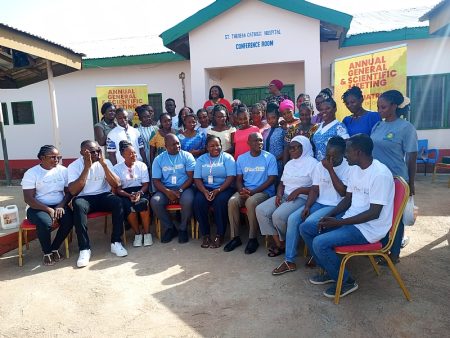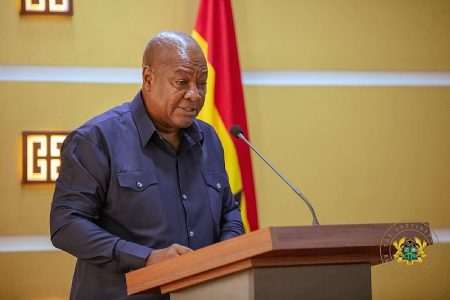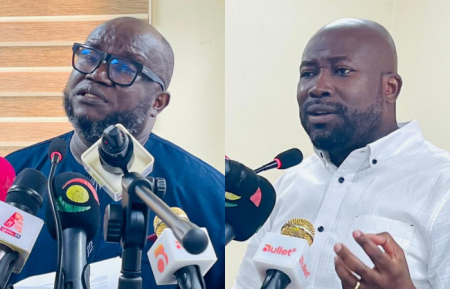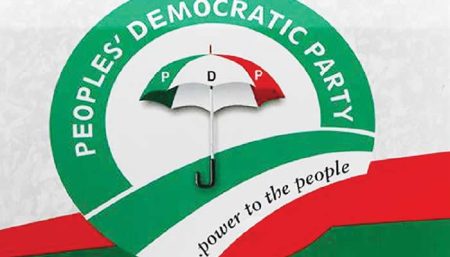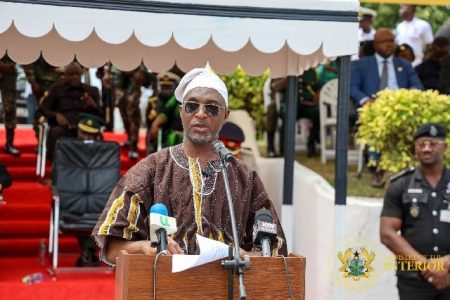The Electoral Commission (EC) of Ghana finds itself in a precarious position, unable to finalize the parliamentary election results for the Ablekuma North Constituency, six months after the December 2024 general elections. This impasse has left the constituency unrepresented in Parliament, prompting the EC to appeal to Parliament for intervention. Dr. Bossman Asare, the Deputy EC Chairperson in charge of Corporate Affairs, addressed Parliament on June 19, 2025, emphasizing the EC’s commitment to ensuring Ablekuma North has representation but highlighting the critical need for police protection to complete the stalled collation process. This unusual delay has become a source of significant tension and public scrutiny in the post-election period, raising concerns about the integrity of the electoral process despite the EC’s insistence on transparency and due process.
The core issue hindering the completion of the collation is the perceived lack of adequate security. Dr. Asare explained that the EC requires the Ghana Police Service to provide security for EC officials, party agents, and electoral staff involved in the collation process. He requested Parliament’s assistance in securing this vital police support, stressing that without these security guarantees, the EC cannot proceed with the final stages of the collation and declare a winner. This security concern underlines the fragile nature of the post-election environment in Ablekuma North and the potential for disruption or violence if the collation process is not handled with extreme care and a visible security presence.
The EC has vehemently defended its handling of the Ablekuma North election, asserting that the collation process has been transparent, participatory, and accountable from the outset. Dr. Asare underscored the presence of agents from both the New Patriotic Party (NPP) and the National Democratic Congress (NDC) throughout the collation, along with media representatives, who have documented the entire procedure. He emphasized that this media presence provides irrefutable evidence of the EC’s commitment to transparency and impartiality. Furthermore, he stated that both parties had agreed to the use of scanned pink sheets – the official record of polling station results – for the collation, and their representatives had formally endorsed both the process and the materials used.
Despite these assurances, the delay continues, fueling public anxiety and frustration among Ablekuma North constituents. The constituency has now gone over six months without parliamentary representation, a situation that undermines the democratic process and deprives citizens of their right to be represented in the national legislature. The EC’s appeal to Parliament represents a significant escalation of the situation, highlighting the seriousness of the security concerns and the urgent need for a resolution. The pressure is now on Parliament to facilitate the necessary security arrangements and allow the EC to complete the collation and declare a winner.
The situation in Ablekuma North underscores the critical role of security in ensuring free and fair elections. While the EC maintains that the collation process itself has been transparent and conducted according to established procedures, the inability to guarantee the safety of those involved has created a major roadblock. This highlights the interconnectedness of different elements of the electoral process and how security concerns can impede even seemingly straightforward administrative tasks like the collation of results. The prolonged delay also raises broader questions about the effectiveness of post-election dispute resolution mechanisms and the ability of institutions like the EC and Parliament to respond effectively to unforeseen challenges.
The EC’s plea to Parliament represents a significant step in attempting to resolve the impasse. By involving the legislature, the EC seeks to bring greater political weight to bear on the situation and hopefully expedite the provision of necessary security. The outcome of this appeal will have important implications not only for the people of Ablekuma North but also for the broader perception of Ghana’s electoral system. A swift and decisive resolution will reinforce public confidence in the EC’s ability to conduct credible elections, while a continued stalemate will only deepen existing concerns and potentially undermine trust in the democratic process. The ball is now firmly in Parliament’s court, and its response will be closely watched by the nation.









